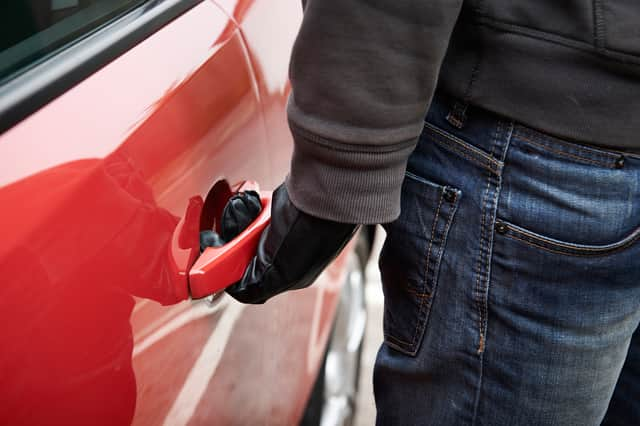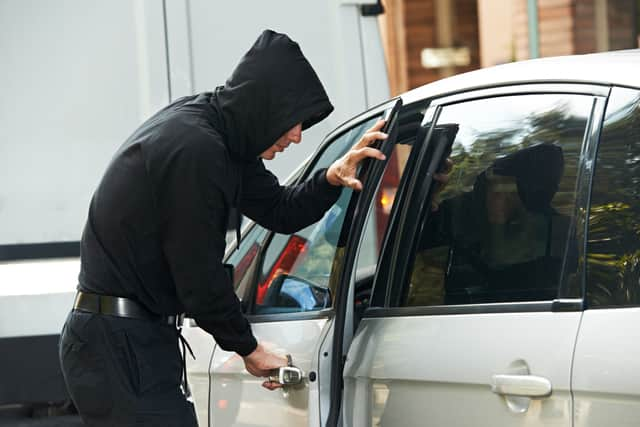Keyless cars twice as likely to be stolen, claims insurer as relay attack thefts increase


Owners of cars with keyless entry have been urged to take extra security measures after an insurer revealed a surge in claims involving the systems.
Keyless entry and start are increasingly common on modern cars and insurer Aviva reports that recent years have seen a sharp rise in customers claiming for stolen cars featuring the technology. It is now encouraging drivers to consider old-fashioned solutions to the high-tech crime.
Advertisement
Hide AdAdvertisement
Hide AdAnalysis of claims figures for the last two years has revealed that drivers with keyless-equipped cars were twice as likely to make a theft claim as those with non-keyless vehicles. Separate data from the Office of National Statistics (ONS) also shows that keyless entry was reported as the most common method of access for vehicle thefts in England and Wales in 2020, jumping from 13% the previous year to 36% of all incidents.
Keyless vehicles are seen as a soft target for thieves who use readily available devices to fool the car’s security system without having to damage the vehicle or try to steal keys. The relay attack method uses a pair of receiver/transmitters to intercept and transmit the signal from a key fob, allowing them to unlock and start a car.
Alec Reeder from Aviva General Insurance said criminal operations were “evolving” to take advantage of new technological weaknesses. He said: “While vehicle security has developed and improved in many ways, unfortunately criminal activity is evolving too. Over the past two years, we’ve found claims for stolen keyless vehicles are twice as likely as those for for non-keyless vehicles.
“While theft claims account for only a small proportion of our vehicle claims overall, we understand that a stolen car can be very distressing for owners. We’d encourage people to take extra precautions, particularly at this time of year, when thieves have the added advantage of reduced daylight.
Advertisement
Hide AdAdvertisement
Hide Ad“Seemingly old-fashioned mechanical devices - such as a steering wheel or foot pedal lock - can be a useful visible deterrent, encouraging thieves to think twice. Other steps include using a signal blocking pouch for keys, or parking in a garage or secure area where possible. Cars really can be gone in 60 seconds, so it’s vital that motorists stay one step ahead of the criminals.”
Some car makers, including Ford and Land Rover, have developed more sophisticated keyless systems which are harder to spoof but recent research found that most drivers were not taking any precautions to protect themselves from relay attacks. An AA survey found that 51% didn’t take any measures to isolate their key fobs, with just 22% using a purpose-made Farady pouch.


The ONS figures suggest that thieves are becoming more brazen in their crimes. Most vehicle-related thefts (76%) take place during the hours of darkness, including stealing vehicles and stealing from them. However, the proportion of vehicle thefts carried out in the dark has fallen, from 77% in 2019 to 65% in 2020. The majority of cars (73%) are stolen from outside their owner’s home.
Comment Guidelines
National World encourages reader discussion on our stories. User feedback, insights and back-and-forth exchanges add a rich layer of context to reporting. Please review our Community Guidelines before commenting.
